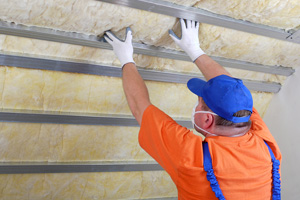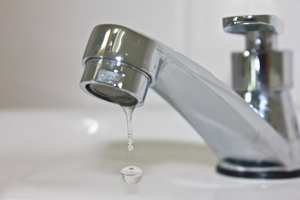Quality matters when hiring for a big project. Call a Best Pick now!
This article was crafted with the help of Matt Schroll of ABC Plumbing, Heating, Cooling & Electric.
Along with winter’s arrival comes the threat of frozen pipes. You could end up without running water, and if you don’t thaw pipes promptly, they could burst and create significant water damage. We spoke with Matt Schroll of ABC Plumbing, Heating, Cooling & Electric in Chicago to find out what to do about frozen pipes and how to avoid them in the first place.
An Ounce of Prevention

As with so many things, the best offense against frozen water pipes is a good defense. This begins with the construction of the house and, in particular, how well it’s insulated and where the pipes lie. Matt says, “The best thing is to have a fully insulated house and not have the pipes on outside walls.”
The more centrally located your plumbing is, the more it will benefit from the warmth of your house and protection from the elements. As Matt puts it, “You have the heat from the house to overcome some of that external temperature that’s coming through the wall.” But depending on when your house was built, this might not be practical, and Matt explains that older homes are more susceptible.
Professionals like Matt can come in and insulate the actual pipes themselves. Matt says, “We use a foam-based insulation that wraps around the pipe. It provides significant prevention.” He adds, “Sealing any air leaks that are near the pipe is also really important because that air is constantly cooling it.”
The Trickle Effect

No matter how well insulated your home may be, back-to-back days of freezing temperatures can still wreak havoc on your pipes if you don’t take action. Most of us know that running your faucets at a very slow trickle is the go-to strategy for preventing frozen water pipes.
Matt confirms, “Unless the faucet is open, the water is just sitting there with nowhere to go, and you’ve got fairly good pressure on the pipe.” As the ice within the pipe thickens and expands, it creates an ever-growing blockage, and in the worst cases, bursts the pipe. Now you’re not only operating without water, you’re also looking at extensive and expensive water damage.
Can’t Beat the Heat
Remember not to turn your heat off or down too much when you go out of town. Matt says, “Sixty degrees is as low as I’d go. And if you’re going to leave for a week or a month, turn the water off to the house so that there’s no new water pushing in to fill the pipe.” If your plumbing resides near cabinets, be sure to keep the doors open to allow some heat in. Another common strategy is to remove any access panels around your piping.
Matt has also seen homeowners place portable space heaters near their pipes, and in some cases, even attempt to thaw them with a hair dryer. This won’t always work, and Matt cautions that you have to be especially careful: “Not only are you working with an electrical appliance near water, but if you add the heat too fast, it’s more likely to expand and burst than if you add it slowly.” And finally, there’s always the option of adding a heat vent to the area so the heat from the furnace keeps your pipes at a steady temperature.
If you want to be on the safe side, it’s best to call in professionals like Matt. They can trace the lines to determine where the pipes are frozen, and they have the special equipment and know-how to thaw frozen pipes. They’ll also work with you to develop a plan to prevent it from happening again. Keep an eye on the weather forecast, leave those faucets dripping, and seal up any air leaks, and hopefully you can avoid the headache from the outset.
Need professional help? Find a local Best Pick® plumber in your area now.
This spotlight article was crafted with the help of ABC Plumbing, Heating, Cooling & Electric, a Chicago Best Pick in Plumbers, Heating & Air Conditioning, and Electricians. While we strive to provide relevant information to all homeowners, some of the material we publish may not pertain to every area. Please contact your local Best Pick companies for any further area-specific advice.


























